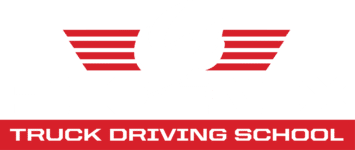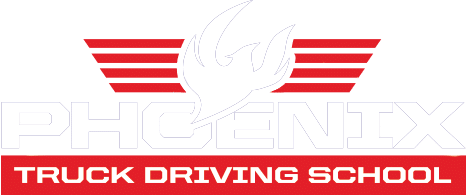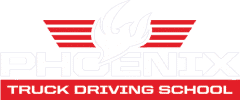Throughout your training and into your career, you are likely going to hear a wide variety of trucking terms. The industry has its own unique vocabulary, and this article gives definitions for some of the most common trucking-related acronyms, words, and phrases.
Definitions Related to Training
- CDL – A commercial driver’s license (CDL) is required to drive a commercial vehicle. You earn this license by passing a written test and a skills test.
- CLP – After passing the written portion of the CDL test, you will earn your commercial learner’s permit (CLP). This allows you to drive a commercial vehicle under the supervision of a CDL holder.
- Endorsement – There are additional written tests you can take during your CDL exam and passing these gives you endorsements, which are added qualifications that allow you to drive specialized vehicles.
- Restriction – Whereas endorsements give you the ability to drive more types of vehicles, restrictions limit what/how you can drive. For example, having the air brakes restriction on your license means you can’t drive a vehicle that uses air brakes.
Definitions Related to Regulation
- DOT – The Department of Transportation (DOT) regulates the trucking industry.
- Drug Testing Consortium – Drug testing is a requirement for all commercial drivers. Some companies use consortiums, which combine the testing pools of multiple motor carriers into one larger pool for random testing purposes.
- ELD – Most long-haul truckers are required to use electronic logging devices (ELDs) to track the number of hours that they drive.
- FMCSA – The Federal Motor Carrier Safety Administration (FMCSA) is a sub-agency of the DOT and sets regulations that trucking companies must follow.
- HOS – There are limits for the number of hours a trucker can drive and be on duty before they must take a break, and these are known as hours of service (HOS) regulations.
- Placard – Trucks carrying hazardous materials (hazmat) are required to display a placard that gives information about the substances that are being transported.
Definitions Related to Trucking Careers
- DAC Report – Many trucking companies use Drive-a-Check (DAC) reports for hiring purposes. It is required for motor carriers to check the motor vehicle record (MVR) of new drivers, although this does not always have to be using DAC reports specifically.
- Dry van – The most straightforward type of truck driving is transporting non-refrigerated goods and materials, known as dry van.
- Flatbed – Flatbed semi-trucks haul a platform instead of an enclosed trailer and freight must be tied down to keep it secure. This type of vehicle is often used for oddly shaped or oversize cargo, and flatbed jobs typically pay more than dry van hauling.
- Linehaul – Linehaul jobs involve traveling between two terminals for a less-than-truckload (LTL) freight company. They tend to be more predictable and involve more home time than long-haul trucking.
- LTL – LTL shipping allows multiple companies to send a smaller amount of freight, which is sorted at terminals. LTL jobs include linehaul and pick-up and delivery (P&D).
- OTR – Over-the-road (OTR) is what most people think of when they think of trucking. It involves staying on the road for weeks at a time and traveling across the country to deliver goods and materials.
- Owner-Operator – An owner-operator truck driver owns their semi-truck and will either contract with a motor carrier or find their own freight with load boards. Being an owner-operator is one of the highest-paid career options in trucking but requires an initial investment to purchase a vehicle and comes with additional responsibilities.
- Pay-per-mile – Most long-haul trucking jobs are pay-per-mile. The rate is usually given in cents per mile (CPM) and the mileage can be calculated in a variety of ways depending on the company.
- P&D – Whereas linehaul LTL drivers travel between terminals, P&D drivers pick up shipments at the terminal and bring them to customers, or vice versa. These jobs involve a lot of city driving but typically allow drivers to be home each night.
- Reefer – Refrigerated trucks (reefers) haul temperature-controlled items, often fresh food. These jobs are in high demand year-round but do require care and attention to make sure the temperature stays constant.
- Tanker – Tank vehicles, also called tankers, transport liquids, gases, or dry bulk. Fuel trucks are one of the most common varieties. If the freight is a fluid, the tanker endorsement is required.
Learn More About the Trucking Industry
At Phoenix Truck Driving School, we give our students the knowledge and skills they need to succeed. We help you learn about the trucking industry and our programs allow you to earn your CDL in as little as four weeks.



